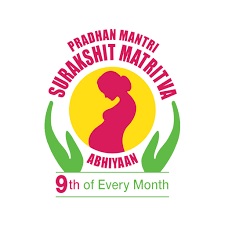
pmsma
The Pradhan Mantri Surakshit Matritva Abhiyan (PMSMA) is an initiative by the Government of India focused on providing high-quality, free antenatal care to pregnant women across the country. Launched under the Ministry of Health and Family Welfare, PMSMA aims to reduce maternal and infant mortality rates and improve maternal health through standardized and comprehensive care. In this article, we’ll explore PMSMA, its objectives, benefits, and its impact on maternal healthcare in India.
Table of Contents
Understanding PMSMA: PMSMA
What is PMSMA?
The Pradhan Mantri Surakshit Matritva Abhiyan (PMSMA) is a program that provides assured, comprehensive, and quality antenatal care to pregnant women on the 9th of every month. Designed to reduce the high maternal and neonatal mortality rates in India, PMSMA focuses on early risk detection, special attention for high-risk pregnancies, and effective follow-up services.
Objectives of PMSMA
The main goals of PMSMA include:
- Reducing Maternal Mortality: By detecting and managing complications during pregnancy.
- Providing Free Antenatal Care: Ensuring all pregnant women have access to essential health check-ups at no cost.
- Early Identification of High-Risk Pregnancies: Identifying complications early to reduce the risk of maternal and fetal mortality.
- Creating Awareness: Informing women about their health, diet, and the importance of regular check-ups during pregnancy.
Key Features of PMSMA
Free Antenatal Check-ups
One of the highlights of PMSMA is the provision of free antenatal check-ups for all pregnant women in their 2nd and 3rd trimesters. These check-ups include various tests and screenings that help detect health issues early.
Dedicated Service on the 9th of Every Month
Under PMSMA, special health check-up sessions are held on the 9th of every month. Government hospitals and healthcare centers across the country participate in this initiative, ensuring accessibility to even rural and remote areas.
Focus on High-Risk Pregnancies
A significant part of PMSMA is identifying and managing high-risk pregnancies. Healthcare professionals are trained to recognize signs of complications and provide the necessary follow-up care for these cases.
Eligibility Criteria for PMSMA
Who Can Avail of PMSMA Services?
PMSMA services are available to:
- All pregnant women in their 2nd or 3rd trimester.
- Women attending government healthcare centers on the 9th of the month.
- Women not already receiving adequate antenatal care from private facilities.
Exclusions
Women in their first trimester may not be eligible for PMSMA as the program is primarily focused on later stages of pregnancy. However, they are encouraged to attend routine antenatal appointments through other government programs.
The Importance of PMSMA in Maternal Healthcare
Reducing Maternal and Infant Mortality Rates
India has one of the highest maternal mortality rates globally, and PMSMA plays a vital role in lowering these rates. By providing early care, the program helps detect and treat issues that may contribute to maternal or infant mortality.
Ensuring Equal Access to Quality Care
PMSMA ensures that all pregnant women, regardless of their socioeconomic background, have access to quality healthcare. By setting up services in government hospitals and community health centers, the program reaches women in remote areas.
Improving Awareness and Health Education
PMSMA also acts as an educational platform. Healthcare providers offer advice on nutrition, hygiene, and necessary lifestyle changes during pregnancy. This education empowers women to take better care of their health and that of their unborn child.
PMSMA Health Services and Procedures
Basic Health Check-ups
PMSMA provides basic health checks that are crucial for maternal health, including:
- Blood Pressure and Weight Monitoring: Key indicators of maternal health and potential complications.
- Urine and Blood Tests: To detect infections, anemia, and blood sugar levels.
- Abdominal Examinations: To assess fetal growth and position.
Screening and Tests
The program also includes screenings for:
- Gestational Diabetes: Common in pregnant women, early detection helps manage diabetes effectively.
- Hypertension: Untreated hypertension can lead to complications like preeclampsia, so screening is essential.
- Anemia: One of the leading causes of maternal mortality, anemia is preventable and treatable if detected early.
Counseling and Health Education
In addition to medical tests, PMSMA provides counseling on nutrition, hygiene, and other aspects of a healthy pregnancy. Women receive advice on diet, essential vitamins, and the importance of rest and exercise.
Implementation and Monitoring of PMSMA
Role of Government Health Centers
Government health centers play a crucial role in PMSMA by conducting the monthly check-ups and keeping records of each woman’s health status. These records are monitored to ensure that high-risk cases are given follow-up care.
Digital Tracking and Reporting
PMSMA has incorporated digital tracking, allowing healthcare workers to record data efficiently and report it to higher authorities. This data helps track progress and identify areas where the program needs improvement.
Involvement of Private Practitioners
PMSMA encourages private practitioners to volunteer their services. This collaboration between public and private sectors enhances the quality and reach of healthcare services, especially in areas with limited government resources.
Benefits of PMSMA
Improved Maternal Health Outcomes
By providing regular and comprehensive check-ups, PMSMA has improved maternal health outcomes. Many women report better overall health and fewer complications when receiving regular antenatal care.
Financial Relief for Expecting Mothers
PMSMA’s free services relieve the financial burden on families, particularly those in rural or economically challenged areas, where access to healthcare may be limited.
Early Detection of Complications
Early detection through PMSMA ensures that high-risk pregnancies are monitored and managed carefully, reducing the risk of severe complications during pregnancy and childbirth.
Challenges and Limitations of PMSMA
Accessibility in Remote Areas
While PMSMA has a wide reach, remote areas still face challenges in accessibility. Infrastructure and a lack of trained healthcare providers can limit the program’s effectiveness in certain regions.
Limited Resources and Workforce
Many healthcare centers in rural India face a shortage of trained medical staff and essential equipment, impacting the quality of PMSMA services.
Cultural Barriers
In some communities, cultural beliefs can prevent women from seeking antenatal care. Addressing these barriers requires continuous education and awareness efforts.
PMSMA’s Impact on Maternal Health in India
Reduction in Maternal Mortality Rate (MMR)
PMSMA has played a role in reducing India’s maternal mortality rate by promoting early care and ensuring the identification of high-risk pregnancies. States with high participation rates have seen noticeable improvements in maternal health indicators.
Positive Influence on Infant Health
By improving maternal health and identifying complications, PMSMA indirectly benefits infant health. A healthy pregnancy increases the chances of a healthy birth, reducing neonatal mortality.
Empowerment Through Health Education
PMSMA empowers women by educating them about health and wellness. Women who attend these sessions learn valuable information on nutrition, hygiene, and the importance of healthcare, leading to more informed health choices.
Future Prospects for PMSMA
Expanding Digital Integration
Future PMSMA initiatives may see increased use of digital tools for tracking, reporting, and remote consultation. Digital integration can enhance monitoring and provide timely updates to pregnant women, particularly those in remote areas.
Increased Collaboration with Private Sector
PMSMA can benefit from increased collaboration with private healthcare providers. By encouraging private practitioners to volunteer, the program can expand its reach and improve service quality.
Greater Focus on Postnatal Care
While PMSMA primarily focuses on antenatal care, integrating postnatal care can help ensure that new mothers receive continued support, ultimately benefiting both mother and child.
How to Avail PMSMA Services
Registration Process
To avail PMSMA services, pregnant women can:
- Visit their nearest government health center on the 9th of the month.
- Register with the help of healthcare workers present at the center.
- Bring relevant medical history or documents if they’ve been previously examined.
Required Documents
While PMSMA generally requires minimal paperwork, bringing an identification document and any past medical records can help healthcare providers assess the patient’s history.
Conclusion
The Pradhan Mantri Surakshit Matritva Abhiyan (PMSMA) has made significant strides in transforming maternal healthcare in India. By providing free, comprehensive antenatal care, it has brought quality healthcare closer to rural and underserved areas, offering much-needed support to expectant mothers. With its focus on early detection, high-risk management, and health education, PMSMA continues to play a critical role in safeguarding maternal and child health in India.



